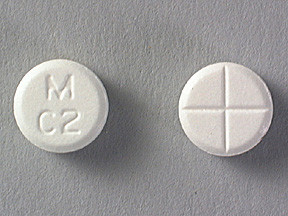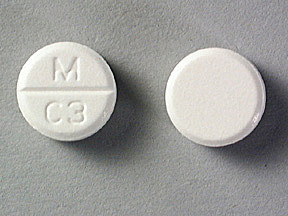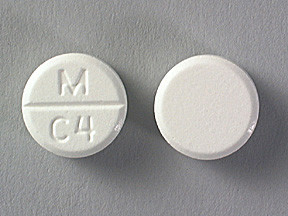CAPTOPRIL - ORAL
PHONETIC PRONUNCIATION: (KAP-toe-pril)
COMMON BRAND NAME(S): Capoten
GENERIC NAME(S): captopril
Uses
USES: Captopril is used to treat high blood pressure (hypertension). Lowering high blood pressure helps prevent strokes, heart attacks, and kidney problems. It is also used to treat heart failure, protect the kidneys from harm due to diabetes, and to improve survival after a heart attack. Captopril is an ACE inhibitor and works by relaxing blood vessels so that blood can flow more easily.
How to use CAPTOPRIL - ORAL
HOW TO USE: Take this medication by mouth on an empty stomach (at least 1 hour before meals) as directed by your doctor, usually two to three times a day. The dosage is based on your medical condition and response to treatment. Use this medication regularly in order to get the most benefit from it. To help you remember, take it at the same times each day. It is important to continue taking this medication even if you feel well. Most people with high blood pressure do not feel sick. For the treatment of high blood pressure, it may take up to 2 weeks before you get the full benefit of this medication. For the treatment of heart failure, it may take weeks to months before you get the full benefit of this medication. Tell your doctor if your condition does not improve or if it worsens (such as your blood pressure readings remain high or increase).
Side Effects
Precautions
Interactions
Overdose
Images
Reviews
Faq for CAPTOPRIL - ORAL
Captopril is an oral medication that belongs to the class of drugs known as ACE inhibitors. It is used to treat high blood pressure (hypertension) and heart failure.
Captopril works by blocking the action of an enzyme called angiotensin-converting enzyme (ACE), which helps to relax and widen blood vessels. By inhibiting ACE, Captopril helps to reduce blood pressure and improve heart function.
Common side effects of Captopril may include a dry cough, dizziness, headache, fatigue, nausea, and skin rash. These side effects are usually mild and go away on their own, but if they persist or worsen, it is advised to consult a doctor.
Captopril is typically taken orally, usually two to three times a day. It can be taken with or without food, but it is best to take it consistently at the same time each day for optimal results. Follow the instructions provided by your doctor or pharmacist for the correct dosage and duration of treatment.
Yes, Captopril can interact with certain medications, including nonsteroidal anti-inflammatory drugs (NSAIDs), diuretics, potassium supplements, and medications that increase potassium levels. It is important to inform your doctor about all the medications, supplements, and herbal products you are taking to prevent any potential interactions.
Captopril should be used with caution in patients with a history of angioedema (swelling of the face, lips, tongue, or throat), kidney disease, liver disease, or certain heart conditions. It should not be used during pregnancy or while breastfeeding. Always inform your doctor about your medical history and any existing conditions before starting Captopril.
Captopril starts working within one hour of taking the first dose. However, it may take several weeks of regular use before the full benefits are felt. It is important to continue taking the medication as prescribed, even if symptoms improve, to maintain control over blood pressure and heart function.
It is generally recommended to avoid or limit alcohol consumption while taking Captopril. Alcohol can increase the severity of some side effects, such as dizziness and lightheadedness, and it may also interfere with the effectiveness of the medication in lowering blood pressure. Consult your doctor for more specific advice based on your individual circumstances.
Yes, Captopril can cause allergic reactions in some individuals. Signs of an allergic reaction may include rash, itching, swelling, severe dizziness, or difficulty breathing. If you experience any of these symptoms, seek immediate medical attention as it may be necessary to stop using the medication.
Captopril is generally not recommended for use in children, as its safety and efficacy in this population have not been well-established. Children with hypertension or heart conditions should be managed by a pediatric specialist who can determine the appropriate treatment options.
Warning
WARNING: This drug can cause serious (possibly fatal) harm to an unborn baby if used during pregnancy. Therefore, it is important to prevent pregnancy while taking this medication. Consult your doctor for more details and to discuss the use of reliable forms of birth control while taking this medication. If you are planning pregnancy, become pregnant, or think you may be pregnant, contact your doctor right away.
Disclaimer
IMPORTANT: HOW TO USE THIS INFORMATION: This is a summary and does NOT have all possible information about this product. This information does not assure that this product is safe, effective, or appropriate for you. This information is not individual medical advice and does not substitute for the advice of your health care professional. Always ask your health care professional for complete information about this product and your specific health needs.




No Reviews Yet